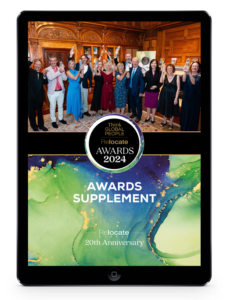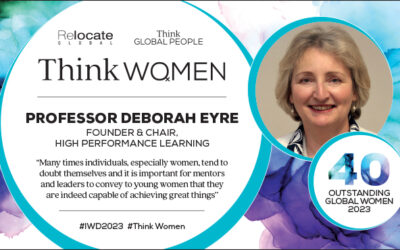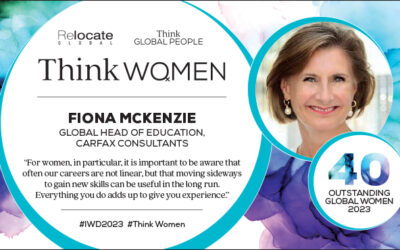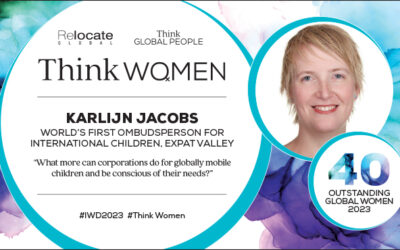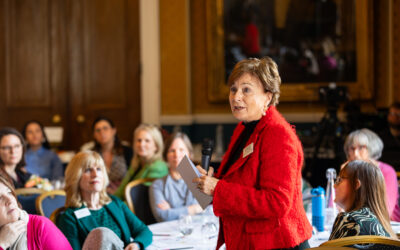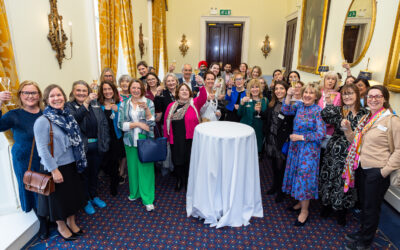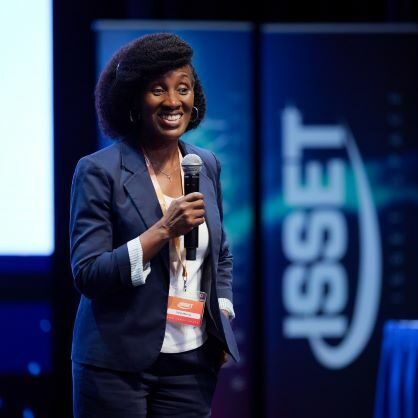Think Women
Caitlin Pyett | 40 Outstanding Global Women 2023
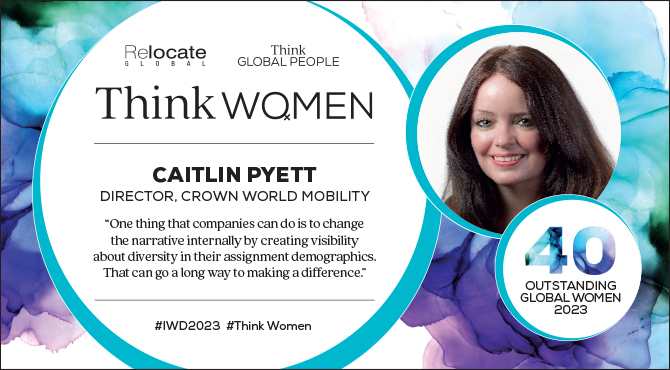
Promoting women on International assignments
“I always knew that I wanted to work overseas, and I wanted to have that experience, but I just thought that would never happen for me, because it there were no examples out there,” says Caitlin Pyett, Director of Account Management, Asia.
For Caitlin, it reminded her of that phrase: you can’t become what you can’t see. “As a much younger woman, I couldn’t see any assignees that looked like me. There were a handful of very well-paid high-level traders, but for someone in my kind of role, and a woman, I just didn’t think it would ever happen. I kind of mentally wrote it off, which is tremendously damaging, really.”
“Companies can highlight women who’ve gone on assignment and they can make sure that all the policies are inclusive. That can go a long way to making a difference. ”
Caitlin Pyett, Director of Account Management, Asia
Yet at age 40, Caitlin was offered a role working in Singapore, and she now lives and works in Hong Kong. As well as being director of account management for the Asia region, Caitlin is also consulting lead and client advisory board lead at Crown World Mobility.
She is a senior global mobility professional with 20 years’ experience across Policy, Operations, Advisory and Strategy. She joined Crown in 2018 and before that she worked as global mobility policies & practices manager at AMEC in Singapore, and for BHP, Standard Chartered, ABN AMRO and BNP Paribas banks in London.
“When I first started working in mobility in the late 90s, most of the assignees were men of a certain age, 30 to 40, with what they called a “trailing family”,” she explains. “Things are definitely changing now, but one thing that companies can do is to change the narrative internally by creating visibility about diversity in their assignment demographics. They can highlight women who’ve gone on assignment and they can make sure that all the policies are inclusive. That can go a long way to making a difference.”
A global career and a wealth of mobility experienceCaitlin always knew that she wanted to work internationally, having studied languages at university.
“I’ve always been very interested in other places and cultures. I got offered a role quite by chance when I was in my late 20s to be the relocation person for an IT recruitment company in London, and this was in the late 90s. It was all about Y2K and the fears that come the year 2000, computer programmes might crash. We were bringing IT specialists into the UK from South Africa and Australia. My job was to find them somewhere to live and find schools for their children and get them a work permit. It was a baptism of fire because I had no experience in any of that and it was very hands on. I used to drive out to Heathrow to meet them and find a hotel for them and go househunting with them. Then I moved into what used to be called expatriate management.”
Catilin later moved to BNP Paribas and worked in various corporates role for 15 years in London, managing expats and dealing with the ever-changing UK immigration rules.
“When I was 40, I was offered a job in Singapore, and my husband and I made the move to from London to Singapore. It was a policy-based role for a company which provided engineering staff to various projects around the world, finding staff for oil rigs and engineering projects in the Gulf or onsite in Papua New Guinea.”
When her husband was relocated to Hong Kong five years later, Caitlin moved with him and after a year of freelancing, was approached by Crown World Mobility to work on the vendor side.
She says the experience of relocating was “definitely more stressful and emotional than you can appreciate unless you’ve done it”.
“We had all of those discussions that go on behind the scenes, the things that families and assignees probably talk about with their partners and families, but which don’t necessarily get conveyed to the employer,” she says.
How to bring more diversity into global assignments
Caitlin says that increasingly clients are focusing on DE& I policies, not just for their staff, but also for often for their entire supply chain.
“Clients want us to guide and inform their assignees about the policies and the benefits they will receive. They want us to make sure that they know that there are resources available for specific situations. People might not want to share personal information, but we can make sure that they know there are resources available if they need them, so that they feel supported.”
For example, women might be more likely to turn assignments down if they are thinking about having families or they’ve got young families.
“There needs to be a financial commitment on the part of the company that if you have a woman who’d be perfect for an assignment position, but she’s got a young family, then maybe she needs some more help in the host location. That could go for single parents as well, whether they’re male or female. So it is about rethinking your benefits and starting from a place of wanting to say yes, so that you can facilitate and encourage diversity in assignments.”


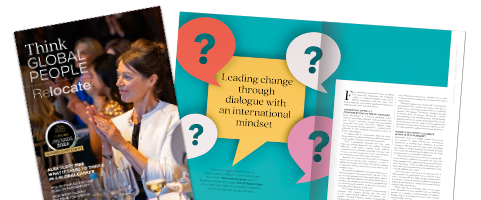

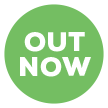 Magazine
Magazine